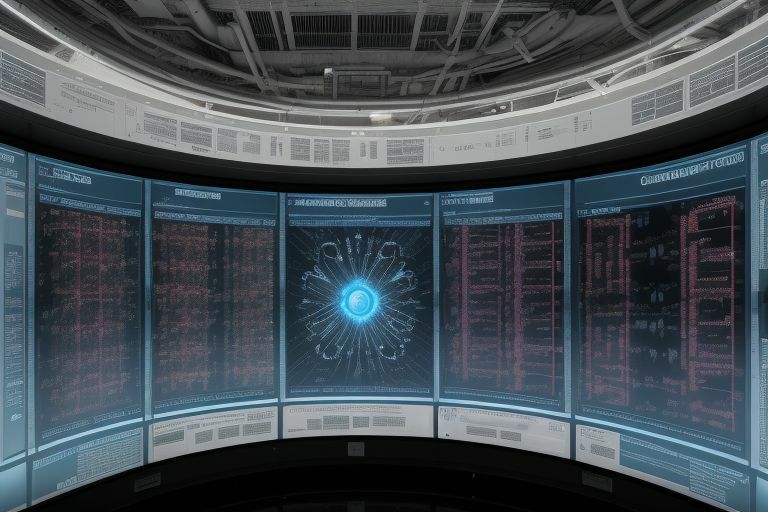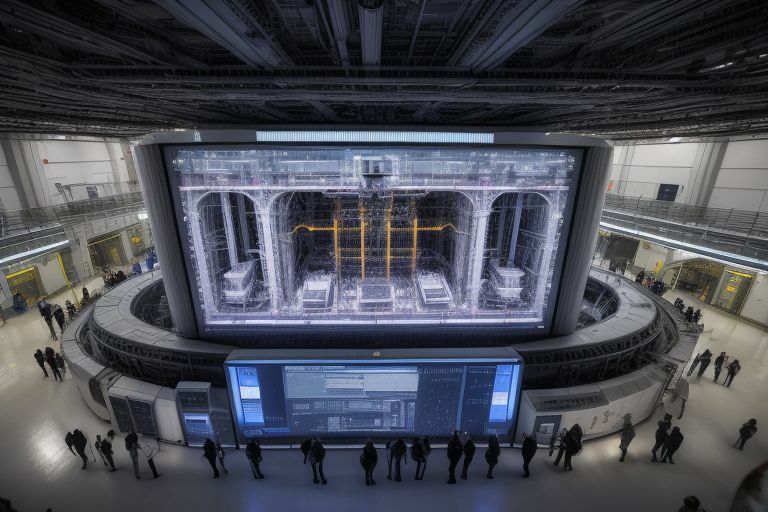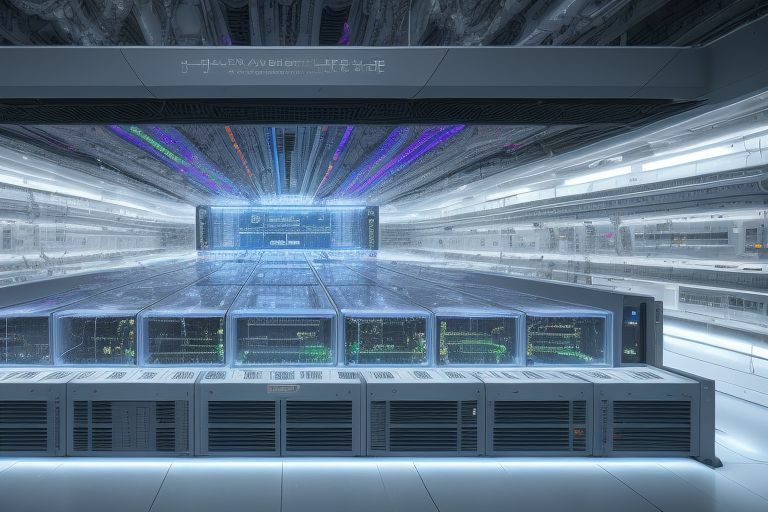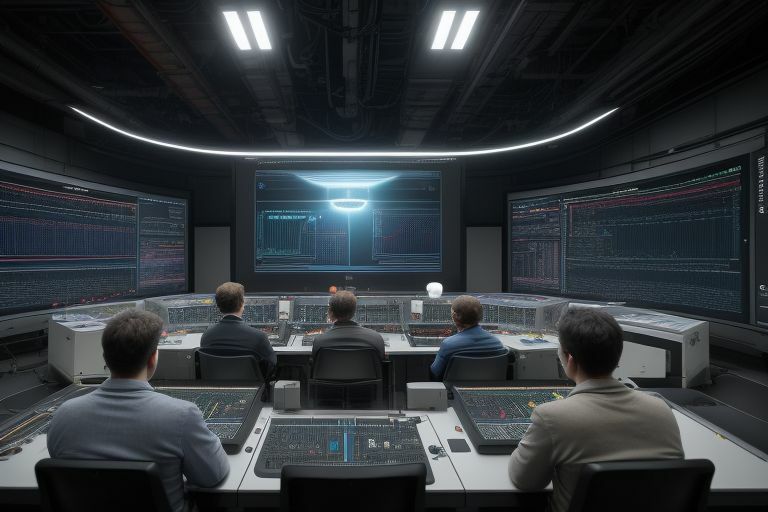
Introduction
In the realm of technology, few topics generate as much excitement and curiosity as quantum computing. This emerging field promises to revolutionize computing, pushing the boundaries far beyond the capabilities of classical computers. Quantum computing is not just an incremental improvement; it’s a paradigm shift that leverages the principles of quantum mechanics to solve problems that are currently intractable.
What is Quantum Computing?
Quantum computing utilizes the principles of quantum mechanics to process information. Unlike classical computers, which use bits as the smallest unit of data (representing a 0 or a 1), quantum computers use quantum bits, or qubits. Qubits can represent and store information in a state of 0, 1, or both simultaneously thanks to a property known as superposition. This allows quantum computers to perform many calculations at once, potentially solving complex problems much faster than classical computers.
Key Principles of Quantum Mechanics
To understand quantum computing, it's essential to grasp a few key principles of quantum mechanics:
Superposition: This principle allows particles to exist in multiple states at the same time. For qubits, this means they can be 0, 1, or both simultaneously, exponentially increasing computing power.
Entanglement: This phenomenon occurs when pairs or groups of particles interact in ways such that the state of one particle directly influences the state of another, no matter the distance between them. Entangled qubits are crucial for quantum computing as they enable instantaneous communication between qubits.
Quantum Interference: Quantum algorithms leverage interference to amplify the probability of correct solutions and cancel out incorrect ones, optimizing the computation process.

Quantum vs. Classical Computing
The fundamental differences between quantum and classical computing lie in how they process information and solve problems. Classical computers follow deterministic processes, performing one calculation at a time. In contrast, quantum computers can evaluate multiple possibilities simultaneously due to superposition. This ability makes quantum computers exceptionally powerful for specific tasks, such as:
Cryptography: Quantum computers can potentially break widely used cryptographic codes, like RSA, by efficiently factoring large numbers.
Optimization: Complex optimization problems in logistics, finance, and manufacturing can be solved more effectively using quantum algorithms.
Drug Discovery: Quantum computing can simulate molecular structures and interactions at an unprecedented level, speeding up the development of new drugs.
Artificial Intelligence: Quantum machine learning algorithms can process and analyze large datasets much faster than classical algorithms.

Quantum Computing Technologies
Several technologies are being explored to build practical quantum computers:
Superconducting Qubits: Used by companies like IBM and Google, these qubits are made from superconducting circuits cooled to extremely low temperatures. They offer relatively high coherence times and scalability.
Trapped Ions: This method uses ions trapped in electromagnetic fields and manipulated using lasers. Companies like IonQ are pioneering this approach due to its high fidelity and connectivity.
Topological Qubits: Microsoft is researching this less developed but potentially more stable approach, which involves braiding quasi-particles in a 2D plane to store information.
Photonic Qubits: These qubits use particles of light (photons) and are manipulated using optical components. They are less affected by decoherence and offer the potential for room-temperature quantum computing.
Quantum Algorithms
Quantum algorithms differ significantly from classical ones. Some of the most notable include:
Shor’s Algorithm: Used for integer factorization, which threatens traditional cryptographic systems.
Grover’s Algorithm: Provides a quadratic speedup for unsorted database searches, useful in various search and optimization problems.
Quantum Fourier Transform (QFT): Integral to many quantum algorithms, QFT enables efficient solutions to problems in signal processing and number theory.
Challenges in Quantum Computing
Despite the promise, quantum computing faces several significant challenges:
Decoherence: Qubits are highly sensitive to their environment, and external noise can cause them to lose their quantum state, leading to errors in computation.
Error Correction: Unlike classical computers, quantum computers require complex error correction mechanisms to manage and mitigate errors caused by decoherence and other quantum noise.
Scalability: Building a large-scale quantum computer requires integrating millions of qubits while maintaining coherence and connectivity, a significant engineering challenge.
Cryogenics: Many quantum computing technologies require extremely low temperatures, necessitating advanced cryogenic systems.
Current State and Future Prospects
As of now, quantum computers have moved from theoretical constructs to experimental devices. Companies like IBM, Google, Microsoft, and startups such as Rigetti Computing and D-Wave Systems are leading the charge, developing increasingly sophisticated quantum processors. Noteworthy milestones include:
IBM’s Quantum Experience: An online platform allowing researchers to run experiments on IBM’s quantum computers.
Google’s Quantum Supremacy: In 2019, Google claimed to achieve quantum supremacy, demonstrating a quantum processor performing a calculation faster than the best classical supercomputer.
Honeywell’s Quantum Computer: Honeywell has developed quantum computers with high fidelity and connectivity, pushing the boundaries of quantum volume, a metric for quantum computational power.
Looking forward, the field anticipates several advancements:
Improved Qubit Technologies: Ongoing research aims to develop more robust and stable qubit technologies, reducing error rates and increasing coherence times.
Quantum Error Correction: Advances in error correction techniques are crucial for building reliable quantum computers capable of performing long computations.
Hybrid Quantum-Classical Systems: These systems leverage quantum processors for specific tasks within a classical computing framework, enhancing overall computational efficiency.
Quantum Networks: Efforts are underway to develop quantum communication networks, enabling secure transmission of quantum information over long distances.

Conclusion
Quantum computing represents one of the most exciting frontiers in technology, with the potential to transform industries and solve some of the most complex problems in science, cryptography, and beyond. While significant challenges remain, the rapid pace of research and development suggests that practical quantum computing might not be as far off as it once seemed. As we continue to unlock the secrets of the quantum realm, the possibilities for innovation and discovery are virtually limitless, heralding a new era of computational power and technological advancement.
#Sources:
Universal Parity Quantum Computing | Physical Review Letters, Vol. 129, Iss. 18, 2022 (APS Link).
Strong Quantum Computational Advantage Using a Superconducting Quantum Processor | Physical Review Letters, Vol. 127, Iss. 18, 2021 (APS Link).
Quantum State Preparation with Optimal Circuit Depth I Physical Review Letters, Vol. 129, Iss. 23, 2022 (APS Link).
